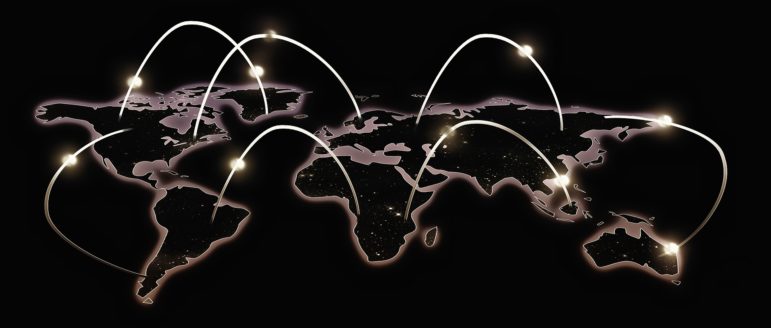
Image by Sumanley xulx from Pixabay
Cross-border projects have grown in popularity and sophistication. At the 11th Global Investigative Journalism Conference, muckrakers who have worked on the Panama Papers, Implant Files and Troika Laundromat shared their their lessons from collaborating across borders.
First of all — forget your ego.
Communicate
Communication is key and sharing data and research is a must in cross-border projects, said Minna Knus-Galan, reporter on the investigative TV program MOT at the Finnish Broadcasting Company, Yle.
“Journalists usually want to keep everything to themselves, but if you keep secrets or don’t communicate, it can ruin everything in a cross-border project,” Knus-Galan said citing her experience working on The Russian Laundromat Exposed and The Troika Laundromat.
Her advice is to share and be transparent, and if you work with big data, bring your own data journalist into the project.
“This way you can do your own analyses of the datasets and see what is relevant for your national story,” she said.
If you want to join an international collaboration as a reporter, networking is key. Keep up with your contacts, help colleagues, begin with smaller projects, and always ask yourself what you can bring to the project. Also, check out Journalismfund.eu and European Cross-Border Grants for funding.
Structure
Collaborating on the Implant Files with 250 journalists from 36 countries was a “hell of coordination,” said Elena Kuch, an investigative reporter working for German public broadcaster NDR.
“Structure is a must,” she said and advised cross-border teams to make smaller groups, organize regular group calls, write summaries of on- and off-the record conversations, have moderators and clear deadlines.
Communicate on developments, doubts and difficulties, manage expectations, share all the information, but do not share your confidential sources, as it is your responsibility to protect them, Kuch explained.
When collaborating with other TV partners, coordinate shoots and interviews, share transcripts and footage, and allow time for fact checking and reading your partners’ stories before publication.
Trust
Mutual trust is key in cross-border projects, said Yasuomi Sawa, investigative journalist and senior writer for Kyodo News, Japan’s largest news wire service.
Sawa, who worked on the Panama Papers and the Implant Files, said trust was important in order to avoid leaks.
“One small leak might put your colleague in danger somewhere else in the world,” Sawa said.
_________________________________________________________
 Anne Sofie Hoffmann Schrøder is a Danish investigative journalist. Her work has appeared in Deutsche Welle, Euronews, Agência de Notícias das Favelas, and various Scandinavian and German outlets. She reports on corruption, machismo culture, and migration in Latin America, and trolls, disinformation, and politics in Europe. She is part of a cross-border team and a grantee of Journalismfund and Robert Bosch Stiftung.
Anne Sofie Hoffmann Schrøder is a Danish investigative journalist. Her work has appeared in Deutsche Welle, Euronews, Agência de Notícias das Favelas, and various Scandinavian and German outlets. She reports on corruption, machismo culture, and migration in Latin America, and trolls, disinformation, and politics in Europe. She is part of a cross-border team and a grantee of Journalismfund and Robert Bosch Stiftung.
